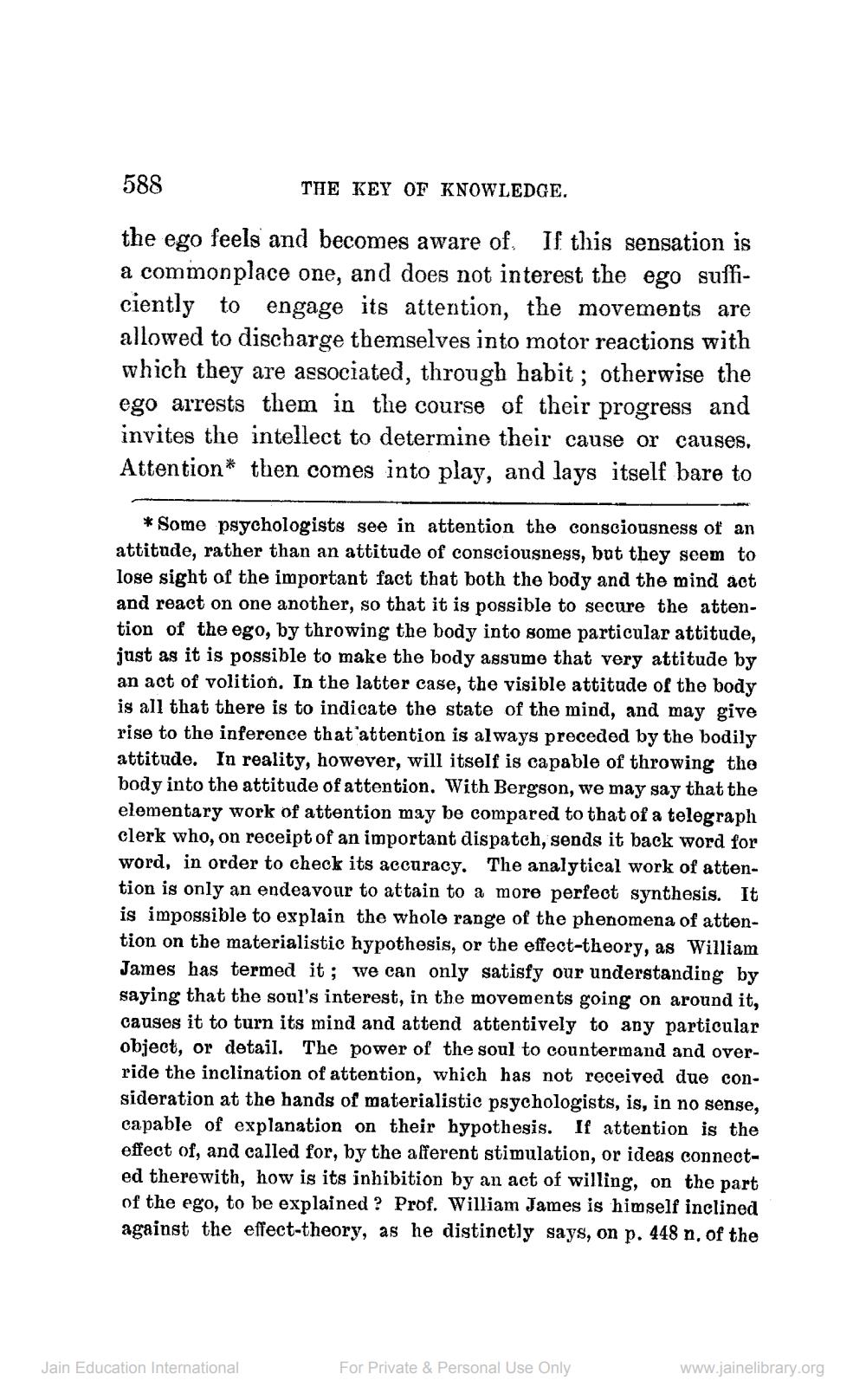________________
588
the ego feels and becomes aware of. If this sensation is a commonplace one, and does not interest the ego sufficiently to engage its attention, the movements are allowed to discharge themselves into motor reactions with which they are associated, through habit; otherwise the ego arrests them in the course of their progress and invites the intellect to determine their cause or causes. Attention* then comes into play, and lays itself bare to
THE KEY OF KNOWLEDGE.
*Some psychologists see in attention the consciousness of an attitude, rather than an attitude of consciousness, but they seem to lose sight of the important fact that both the body and the mind act and react on one another, so that it is possible to secure the attention of the ego, by throwing the body into some particular attitude, just as it is possible to make the body assume that very attitude by an act of volition. In the latter case, the visible attitude of the body is all that there is to indicate the state of the mind, and may give rise to the inference that attention is always preceded by the bodily attitude. In reality, however, will itself is capable of throwing the body into the attitude of attention. With Bergson, we may say that the elementary work of attention may be compared to that of a telegraph clerk who, on receipt of an important dispatch, sends it back word for word, in order to check its accuracy. The analytical work of attention is only an endeavour to attain to a more perfect synthesis. It is impossible to explain the whole range of the phenomena of attention on the materialistic hypothesis, or the effect-theory, as William James has termed it; we can only satisfy our understanding by saying that the soul's interest, in the movements going on around it, causes it to turn its mind and attend attentively to any particular object, or detail. The power of the soul to countermand and override the inclination of attention, which has not received due consideration at the hands of materialistic psychologists, is, in no sense, capable of explanation on their hypothesis. If attention is the effect of, and called for, by the afferent stimulation, or ideas connected therewith, how is its inhibition by an act of willing, on the part of the ego, to be explained? Prof. William James is himself inclined against the effect-theory, as he distinctly says, on p. 448 n, of the
Jain Education International
For Private & Personal Use Only
www.jainelibrary.org




